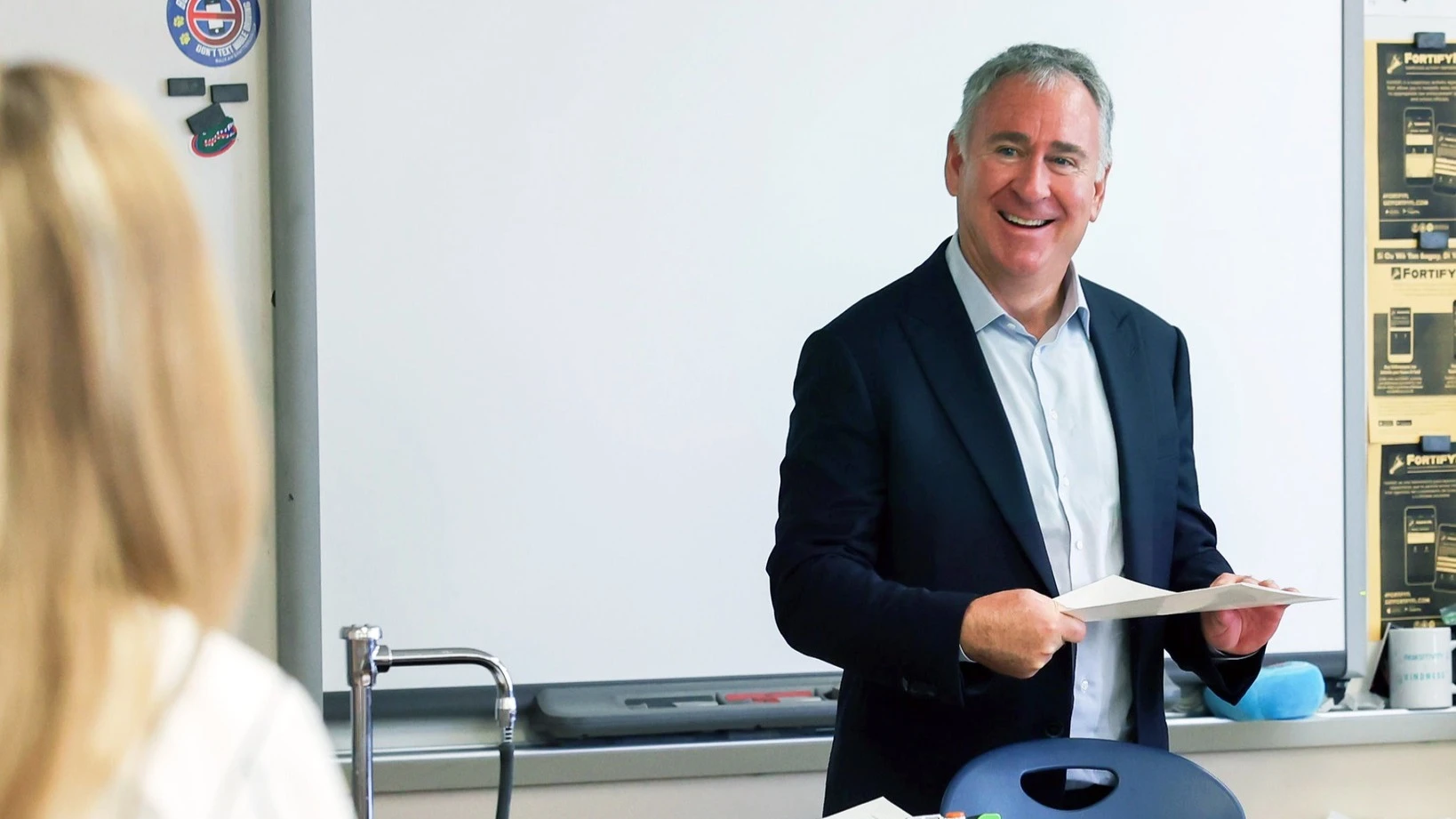"On defense, you lose." Ken Griffin on how investors should act in a crisis
Citadel's founder doesn't believe in "safe harbors" and offers investors another option to behave in times of uncertainty

How should an investor act when the market is volatile, prices are fluctuating, and the agenda is becoming less and less predictable? Ken Griffin, the billionaire founder and head of the Citadel hedge fund, managing $66 billion in assets, offers his own version of behavior. His approach goes against the usual strategy of "going on the defensive.
"Safe" doesn't mean "profitable."
When market uncertainty grows, investors may be tempted to "go on the defensive" - to reduce risk, invest in protective assets, and wait it out. This year, there are more than enough reasons for such a decision: the unpredictable policy of President Donald Trump, the growth of geopolitical tension in the Middle East, oil price hikes and a new wave of inflationary concerns;
However, Ken Griffin believes that a "defensive posture" in crisis situations is not the answer. In early June, he told participants in Citadel's 2025 intern program that a strategy in which investors exit risky assets and move into defensive instruments, such as bonds or low-volatility funds, almost always leads to losses, reports CNBC.
"In finance, when you play defense, you almost certainly lose. Every time a portfolio manager tells me, 'I'm going on the defensive,' I expect a minus - because that's usually what happens," he said.
Griffin explained that by moving away from risk, the investor ends up in "safe trades" where everyone else has already gone - and that's where losses are most likely to occur. "If you're going to protect yourself, just move to cash," he summarized;
Griffin had previously said in an interview with Bloomberg that "sitting in the cache" was the best strategy for investors during the spring volatility caused by the U.S. trade war.
Risk culture for the investor
According to Griffin, Citadel has been building a culture of prudent risk-taking for years: employees are trained to make decisions based on expected mathematical or statistical returns, ignoring the emotional component of risk;
"We've had incredible results training people to be more risk neutral," Griffin assures us. - Most people are naturally risk averse. But in finance, the closer you get to risk neutrality, the more optimal your decisions become in terms of profit;
The founder of the hedge fund is sure that without a willingness to fail, there will be no success. That is why the company relies on those who are active rather than hiding behind "protective" assets: "Our culture is that of true risk-takers. People who are ready to make a step forward and sometimes fail. Because if you're not prepared for a bad day, you won't have a good day."
Even in the face of geopolitical instability, price pressures and monetary policy uncertainty, Griffin advises investors not to be risk-averse. In his experience, excessive caution rarely leads to success: "safe" assets become a trap, and fear of volatility prevents profitable decisions.
